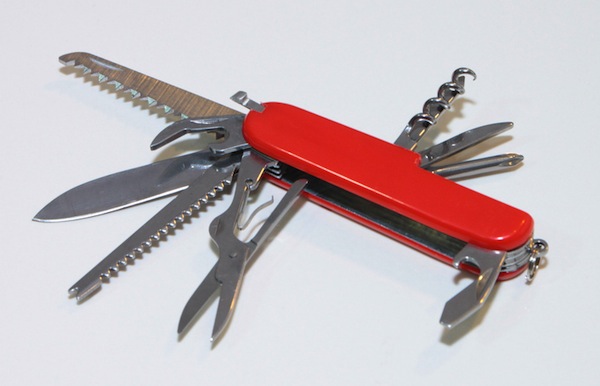

We asked an array of people — hiring editors, recent graduates, professors, technologists, deans — to evaluate the job j-schools are doing and to offer ideas for how they might improve. Over the coming days, we’ll be sharing their thoughts with you. Here’s Bill Grueskin, dean of academic affairs at the Columbia University Graduate School of Journalism, talking about the need for specialization.
For many years, striving journalists seeking their first jobs would consult the back pages of Editor & Publisher magazine. The Help Wanted ads went on for pages, filled with pleas from small-town newspaper editors who would often say they were seeking reporters “would could do everything.”
In those days, “everything” meant a day comprised of covering a town commission meeting, typing school lunch menus and, before leaving, emptying the tray of D-76 developer solution in the darkroom.
This one-size-fits-all approach demonstrates a lack of nuance about the tremendous transformations in our business.
Editor & Publisher is a much smaller publication now, alas, and the stench of D-76 no longer permeates newsrooms. But this idea of the “do everything” journalist has persisted into the digital age.
The phrase we hear now is the “Swiss Army knife” journalist. Meg Heckman, web editor of New Hampshire’s Concord Monitor, referred to this when quoted in an AJR article earlier this year, adding that reporters “need to know a little bit of everything.” LinkedIn features a number of journalists who tout their multiple skills. One describes himself this way: “Photographer, videographer, web designer, graphic designer….I was a Swiss Army knife in the office.”
Where the industry leads, journalism schools usually follow, and as a result, many of us have launched programs designed to imbue our students with a buffet of digital skills. Those have included photo, video, radio, web design, search engine optimization, social media, and data visualization. Thus armed with this wheelbarrow of talents, journalism graduates could tell employers that they were as adept at Final Cut Pro as writing nut grafs, as versed in long-form video as in short-form breaking news.
It’s true that some newsrooms do want one-size-fits-all journalists. And the reasons are clear and understandable. Many publishers face shrinking personnel budgets, as well as escalating needs to boost traffic to websites and apps. Given that advertisers are usually willing to pay higher rates for video pre-rolls than display ads, or that photo slideshows drive far more pageviews than articles, it follows that editors want young reporters who can cover meetings with a camera as well as a laptop.
But this one-size-fits-all approach demonstrates a lack of nuance about the tremendous transformations in our business. Yes, journalism is going digital. But that means many different things.
Crafting web video, deploying Twitter as a reporting tool, and presenting data-driven graphics all fall within the umbrella of “digital journalism,” but they have little in common with each other. Indeed, the skills barely overlap.
Columbia’s Graduate School of Journalism has a robust Career Services office with a career expo that regularly attracts more than 100 employers a year. Those news organizations don’t often ask for “do-it-all” journalists these days, says Ernest Sotomayor, dean of students.
Instead, they are chiefly focused on students who understand the value of reporting, news judgment, and writing. They often say they want students who can demonstrate proficiency in a specific digital skill or two. Having additional skills is a plus, but without strong fundamentals, they don’t land top jobs.
And universal digital training belies pedagogical reality as well. Students usually come with, or develop over time, an intense interest in one or two formats. Asking them to become proficient at more than a few of them sets unreasonable expectations and, more importantly, deprives them of the need to excel at something rather than everything.
The Swiss Army knife is a useful tool on camping trips, but you’d be unlikely to use one in your kitchen if you have a great paring knife or corkscrew nearby. Journalism schools that send out graduates with rudimentary training in a large number of platforms are providing little value to their students, and are disserving the business that is fighting a battle for survival.